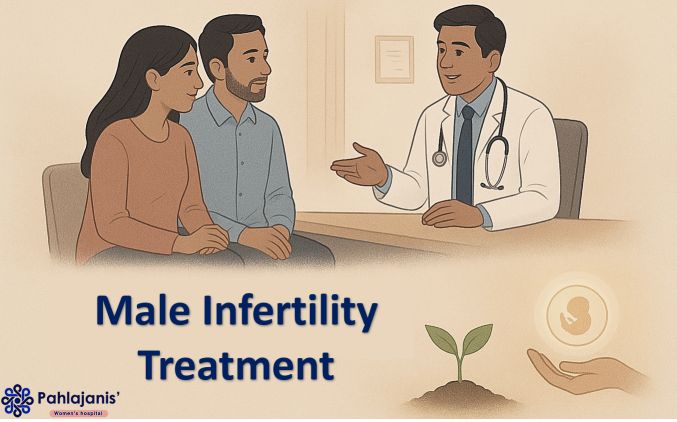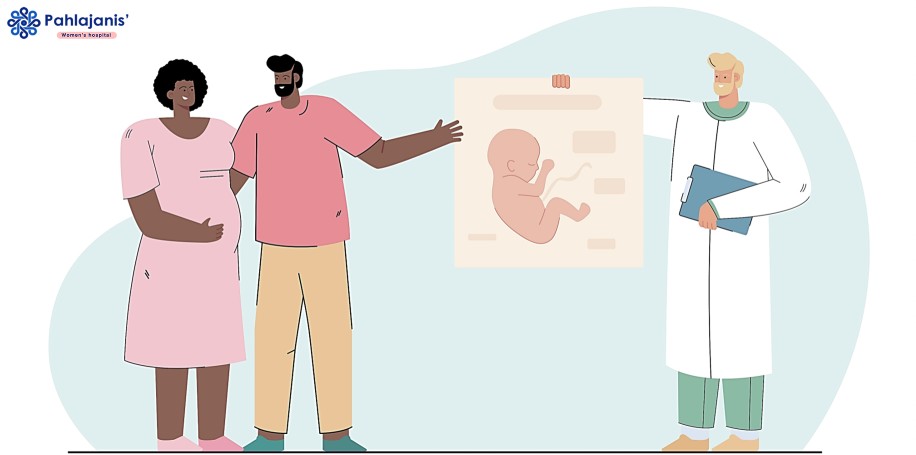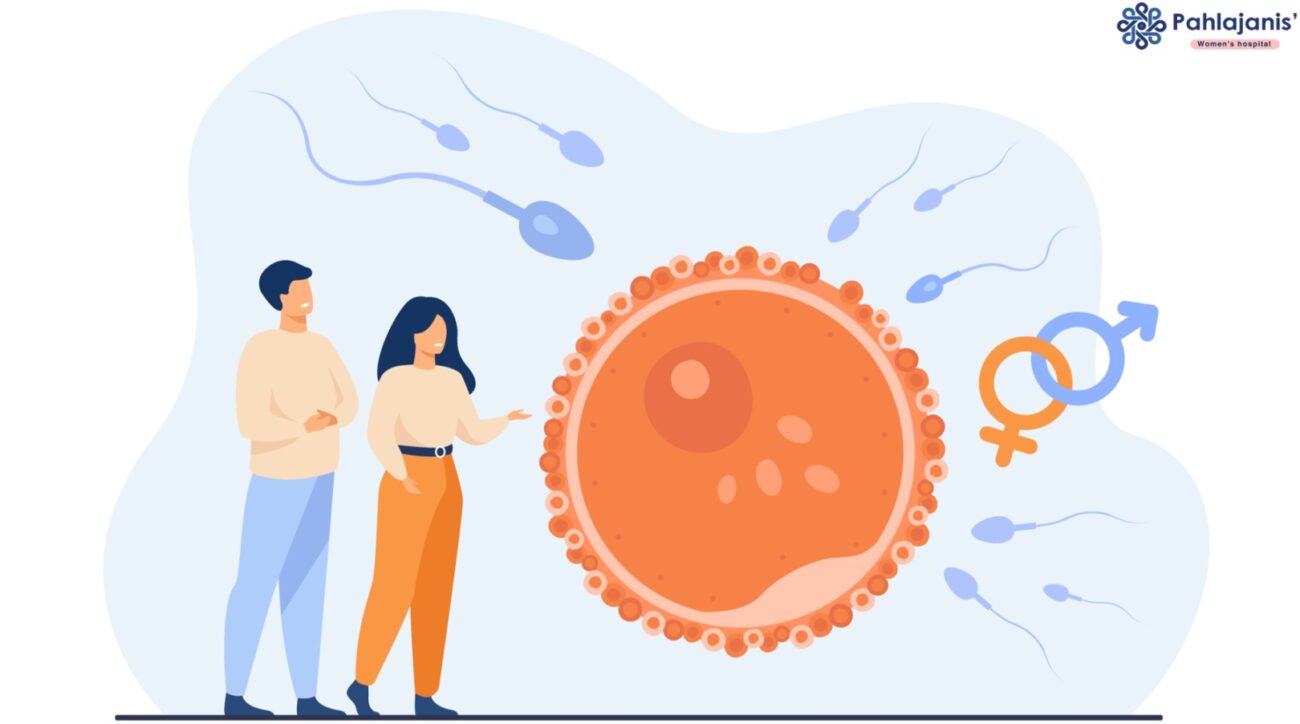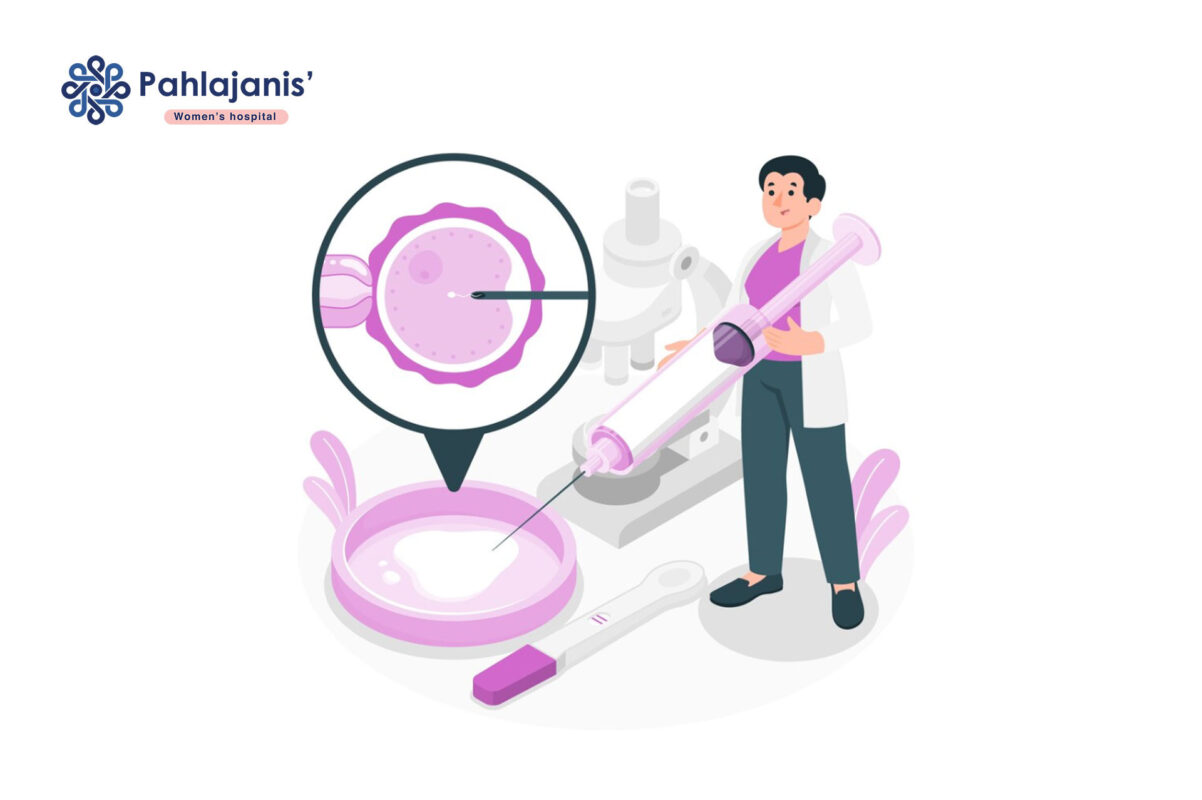Infertility affects many couples worldwide. In fact, about 17.5% of adults (roughly 1 in 6 people) have trouble getting pregnant after a year of trying (WHO). Infertility can come from the man, the woman, or both partners, but about half of cases involve male factors (ICMR), highlighting the growing need for Male Infertility Treatment. In India, an estimated 10–15% of couples can’t have a baby without help (ICMR). Older surveys and ICMR guidelines reported similar numbers, and a recent national survey found around 18% infertility prevalence in India (ICMR). Clearly, this is a common issue – one the WHO calls “a major health challenge” globally (WHO).
Infertility is defined as not getting pregnant after 12 months of regular unprotected sex (WHO). It can cause stress, stigma and financial strain. Sadly, many people have to pay out of pocket for treatment. WHO notes that fertility treatments like IVF are often much more expensive than people’s income, pushing families into debt (WHO)? In rich and poor countries alike, the cost of care is a big barrier (WHO). That’s why affordable options matter so much – especially in places like Raipur, the capital of Chhattisgarh, where many couples are seeking help.
Why Male Infertility Matters
Many men don’t realize they can be the source of a couple’s trouble. Male infertility means something is keeping a man’s sperm from fertilizing his partner’s egg. It can be as simple as a low sperm count or poor sperm movement (motility), or as complex as genetic or hormonal issues. Common causes include:
- Low sperm count (oligospermia): Having fewer sperm than normal.
- Poor sperm motility (asthenospermia): Sperm don’t swim well.
- Abnormal sperm shape (teratospermia): Sperm look odd and often can’t fertilize an egg.
- Blockages or varicocele: A varicocele is an enlarged vein in the scrotum that can raise testicle temperature and hurt sperm production. Other blockages can prevent sperm from getting into the semen.
- Infections or health problems: Past infections, undescended testicles, diabetes, or hormone imbalances can hurt sperm.
- Lifestyle factors: Smoking, heavy drinking, certain drugs, high heat (from frequent saunas or tight underwear), or exposure to toxins may lower fertility.
Often there are no obvious symptoms. A man might feel fine physically. The usual sign is that a couple can’t get pregnant. It’s important for both partners to get tested if pregnancy doesn’t happen after a year. Men should not assume it’s always a “woman’s problem.” Early diagnosis can help fix the issue or guide the right treatment.
Diagnosis of Male Infertility
Getting tested is the first step. In Raipur, like anywhere, a man should start with a check-up and tests if pregnancy doesn’t happen. This usually includes:
- Semen analysis: The key test. A small sample of semen is checked for sperm count, how well they move, and their shape. This test is quick and affordable – many labs and services in Raipur offer semen analysis for just a few hundred rupees.
- Blood tests: Hormone levels (like testosterone and FSH) can be checked with a simple blood draw. Abnormal hormone levels might indicate problems in sperm production.
- Physical exam: A doctor (often a urologist or a fertility specialist) will examine the genitals. They look for varicocele (swollen veins in the scrotum), check testicle size, and see if the penis and other structures are normal.
- Ultrasound or imaging: If needed, a scrotal ultrasound can check blood flow and look for blockages. In rare cases where there’s no sperm at all, they might check for missing or blocked tubes.
- Special tests: If initial tests show very low or no sperm, sometimes advanced tests like DNA fragmentation (checking sperm DNA) or a genetic test may be done.
Getting a semen analysis in Raipur is very straightforward. Major hospitals and clinics do it. Even some tech services can send a home collector, though Raipur’s medical labs can handle it too. In any case, diagnosing male infertility is often simple and low-cost. A good lab will explain the results clearly.
Book your consultation for safe and effective Male Infertility Treatment now.
Male Infertility in India and Raipur
Infertility is a growing concern in India. A large recent study found that Chhattisgarh (the state where Raipur is located) has one of the highest infertility rates in the country (JRI). In that survey of married women, Chhattisgarh’s infertility prevalence was about 31.6 per 1000 women married five years or more (JRI) – much higher than many other states. In plain language, this means Chhattisgarh and Raipur see more couples struggling to conceive than the national average.
India’s overall infertility rate is also high. Earlier data show about 17.9% of Indian couples face infertility (JRI). In big cities, the figure can be even higher due to lifestyle factors (stress, late marriage, etc.). Raipur, as a growing city, follows these trends.
In practice, Raipur has many couples seeking fertility care. The city has clinics and specialists (urologists, gynecologists, and fertility doctors) ready to help. For male infertility treatment, a man in Raipur can visit general hospitals or specialty centers for tests. The awareness is growing: once a taboo topic, now couples openly ask about sperm count and “male infertility treatment.”
The World Health Organization also highlights that infertility is just as common in low- and middle-income countries as anywhere else (WHO). So, people in Raipur need access to treatment, and local doctors are aware of the issue.
Options for Male Infertility Treatment
If tests show a problem, there are several treatment paths. The choice depends on the cause:
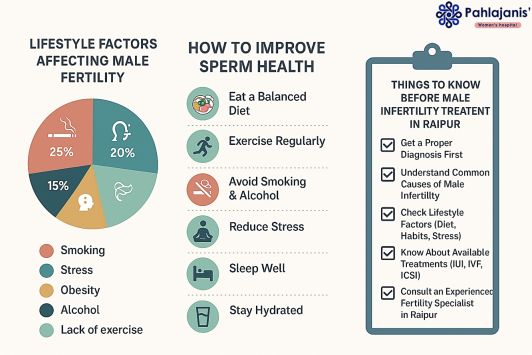
- Lifestyle and medicine: If the problem is mild, doctors often start by advising lifestyle changes. This means healthy diet, quitting smoking or alcohol, reducing stress and heat exposure. Certain supplements (like zinc, folic acid, vitamins) might help sperm health. If an infection is found, antibiotics can clear it. Hormone treatments can be given if hormone levels are off. These steps are relatively low-cost.
- Surgery: For some issues, simple surgery can help. For example, a varicocelectomy fixes swollen veins in the scrotum. This operation can improve sperm count in about half of men and costs maybe a few tens of thousands of rupees (often much less than IVF). If a blockage is found (say a missing or blocked vas deferens), a small surgery might clear the path. In Raipur, many surgeons perform these routine procedures.
- Assisted reproductive technologies: When basic treatments aren’t enough, techniques like IUI or IVF are used. IUI (intrauterine insemination) is a lower-end procedure where sperm (from husband or a donor) are washed and placed directly into the woman’s uterus around ovulation. It can help if sperm numbers or movement are slightly low. In Raipur, an IUI cycle usually costs under Rs 10,000, plus any medications.
IVF (in vitro fertilization) with ICSI (intracytoplasmic sperm injection) is more advanced. IVF is when eggs and sperm are combined in a lab dish to create embryos. ICSI is a special technique for male-factor infertility: a single sperm is directly injected into an egg. This is the go-to method if a man has very low sperm count or poor sperm quality. In practice, if the man has few or very weak sperm, doctors in Raipur will often recommend IVF+ICSI.
- Sperm retrieval: In cases of zero sperm in the ejaculate (azoospermia), sperm might still be retrieved by a minor procedure like TESE/PESA (taking sperm directly from the testes or epididymis). These sperm can then be used with ICSI. In Raipur, clinics do this too – one source notes even these procedures cost only about Rs 12,000–18,000, which is modest compared to the overall cycle.
- Donor or adoption: If a man’s sperm can’t be used even with advanced techniques, couples may consider donor sperm IUI/IVF or adoption. This isn’t about treatment, but it’s part of “what you should know” if male infertility is unfixable. Many couples seek counseling about this.
Each treatment option has its place. Couples should discuss the best approach with a fertility specialist or urologist. In Raipur, fertility centers typically have teams of gynecologists and andrologists working together.
Costs and “Affordable” Options
A key worry is cost. Male infertility treatments can be expensive, so looking for affordable options is smart. Here’s a quick rundown of typical costs in Raipur:
- Semen analysis: ~Rs 500 (very cheap).
- Medical tests & doctor fees: Usually just a few thousand rupees.
- IUI cycle: Up to Rs 10,000 (sometimes more if medications are needed).
- IVF cycle: Roughly Rs 1,00,000 to Rs 2,00,000 per cycle, often including basic drugs. Some clinics quote around Rs 1,00,000-1,50,000 including medicines.
- ICSI: Often included in IVF packages above, but if added separately it can add a bit (maybe Rs 20,000-50,000 more).
- Medications: Hormone and fertility drugs vary, but can add Rs 20K – 50K to a cycle.
- Surgeries (e.g., varicocelectomy): On the order of Rs 20,000–50,000 (hospital and surgeon fees), which is relatively low compared to IVF.
- Advanced procedures (TESA, etc.): Rs 12k-18k.
- Consultations: Typically, Rs 500-1,000 per visit.
These are ballpark figures from local clinics. They show IVF can be quite costly for average families. In fact, a 2025 news report in Raipur noted private IVF costs ranging Rs 1.5 lakh to Rs 5 lakh per cycle in the city. That article is urging the government to offer free IVF at public hospitals because the current cost is “extremely high” and unaffordable for poor couples.
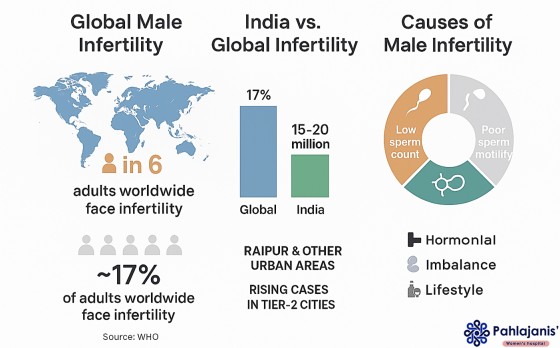
Finding the Right Clinic in Raipur
If you’re looking for “the best male infertility clinic in Raipur”, it pays to do some homework. Raipur has a handful of fertility centers and urology/andrology specialists. Some general tips:
- Qualifications matter. Look for a urologist or andrologist with fertility experience. Many gynecologists also treat male factors as part of a team. Check if the doctor is associated with a hospital’s IVF program.
- Clinic equipment. Good labs (NABL-accredited) and equipment (for semen analysis, ICSI lab, etc.) improve chances. Find out if the clinic does actual lab work on site or sends it elsewhere.
- Experience with male cases. Some centers focus more on female issues. A clinic with an andrologist or male fertility specialist is preferable for male infertility treatment. For example, Pahlajanis’ IVF Centre advertises specifically that they handle male infertility treatment like ICSI and sperm retrieval.
- Success rates (with caution). Clinics often quote success numbers (like Pahlajanis’ claims an 80%+ success rate). Take these with a pinch of salt – they may vary by patient age and condition. Instead of headlines, ask the doctor how many cycles succeeded in couples like you.
- Cost transparency. A good clinic should break down its fees clearly. If one center’s IVF quotes double of another’s for the same services, find out why. Some big chains like Indira IVF or CARE Hospitals (Raipur branch) have published cost ranges online for comparison.
- Patient reviews. Look up feedback from other patients. Local forums, WhatsApp groups, or even Google reviews can give clues about doctor communication, kindness, and pricing.
- Location and convenience. Clinics in Raipur include Pahlajanis (Anupam Nagar), Indira IVF, Ashoka IVF, and Apollo/Suman Hospital (Mahapal, near Bhilai). Choose one you can reach easily, since multiple visits are needed.
- Support services. Some centres offer counseling, diet plans, or male counseling as part of the package. These can be worth having, especially as infertility can be stressful.
In summary: don’t just jump on the first clinic you find. Compare at least 2–3 places, ask questions about male infertility treatment specifically, and see which one fits your budget and trust level. It’s okay to bring your spouse to consultations. It’s his issue too.
Take the first step toward fatherhood with reliable Male Infertility Treatment. Visit Us Now.
Pahlajanis’ IVF Centre in Raipur
One fertility clinic often mentioned in Raipur is Pahlajanis’ IVF Centre. This is a private chain with a branch in Raipur. They’ve been around (they say 42+ years in male infertility treatment) and treat many couples. While we won’t hype them, it’s useful to know what they offer since they’re a local example of a provider:
- They advertise a “wide range of services” including IVF, IUI, ICSI, laparoscopy and even male infertility treatment.
- For male infertility treatment specifically, Pahlajanis says “we specialize in ICSI … for severe male infertility, along with DNA fragmentation testing and surgical sperm retrieval”. This indicates they have the technology and experience for tough male-factor cases.
- They also mention trying to make things affordable and personalized for couples. (Of course, that’s their statement – couples should still ask for actual cost quotes to verify.)
- In short, Pahlajanis’ is one example of a Raipur clinic that handles male infertility from diagnosis through advanced ART, and they highlight affordability in their messaging.
Even if you don’t choose Pahlajanis’, it’s good to know such clinics exist. They may offer free initial counseling or workshops now and then. You can schedule a consultation to understand your case. But also weigh them against others like Indira IVF or government hospitals once they set up IVF, to see what’s best value.
Realistic Advice: Staying Grounded
Dealing with infertility can be emotional. It’s easy to get anxious or hear too many promises from ads. Here are a few honest pointers:
- Both partners’ matter. Even if the issue seems to be male infertility, the woman’s fertility health also counts. The doctor will always evaluate both. Don’t skip that.
- Success is not guaranteed. No clinic can promise a baby. IVF/ICSI success rates may be 30–50% per cycle for young couples, lower if older. Treat each step as a hopeful chance, but prepare yourself emotionally.
- Be wary of “miracle cures.” Some products or treatments online claim to “boost sperm overnight” or “cure infertility naturally.” Trust proven medicine – lifestyle help (like quitting smoking) is fine, but be cautious of anyone selling unverified pills or therapies. If it sounds too good to be true (100% success, extremely cheap, etc.), get a second opinion.
- Ask questions. Don’t be shy with your doctor. Ask why they recommend a test or procedure. If a doctor says “you need IVF,” ask if anything else can help first. If you don’t understand a medical term, ask them to explain in plain language. A good clinic will respect your questions.
- Seek support. Infertility can strain a relationship. Consider counseling or support groups (even online ones for Indian couples). Talking to others in Raipur or nearby who have been through it can be comforting.
The Bottom Line
Male infertility is common and treatable in many cases. In Raipur and Chhattisgarh, couples have more options than ever to find help. At minimum, men should get a semen analysis early on if pregnancy is delayed; this simple Rs 500 test can open the door to all further care. Many male infertility treatment (like surgeries or IUI) are surprisingly affordable, though IVF can cost lakhs.
If you’re reading this in Raipur or nearby: talk to a doctor soon. Male infertility is not a character flaw or a life sentence. Modern medicine can help many couples achieve pregnancy. Just remember to ask about costs and alternatives (like Pahlajanis and other local clinics do) so you can find the most affordable male infertility treatment that works for you.
Treatment may not be “instant,” but it’s real medicine. Stick with clear facts, check reliable sources (like WHO or ICMR), and get support from both medical and emotional professionals. With good care and persistence, many couples in Raipur have overcome male infertility. You’re not alone, and help is available.

